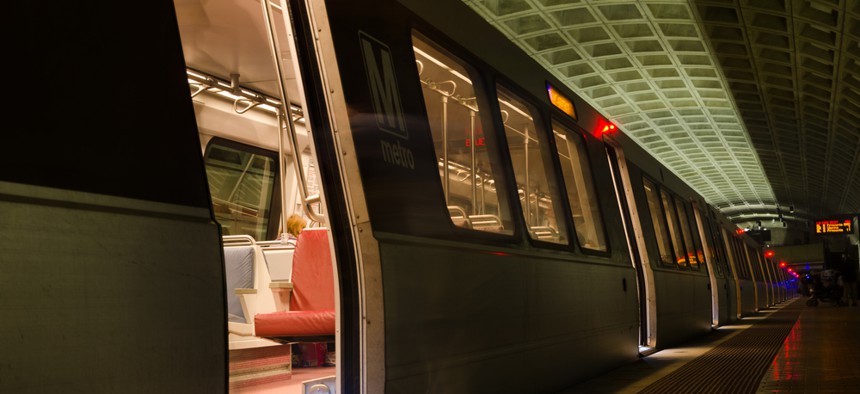
Orhan Cam/Shutterstock.com
The Ideal Commute Is Not Actually No Commute
It's normal for people to want a little time to detach from the workplace.
I can't say for sure that I have the world's shortest commute, but if it were any shorter, I'd probably be dead. My commute is three each way: That would be steps, not stops or even minutes. Three steps from the threshold of my bedroom to that of my home office. To be totally honest, I've done the trip in one. My version of a traffic jam is when one of the cats is lying in the doorway. My version of a real-time transit update is, I suppose, whatever spinal signal tells the brain the legs are working.
But sometimes—and, not looking a gift horse in the mouth, I stress just sometimes —I wish the trip were a bit more substantial. Or, that it at least existed. That's especially true after work, and I will often leave (or even invent) errands for the early evening to simulate a trip home. It gives some time to decompress. To ruminate on a story in progress. To transition from office persona to home persona. To wonder whether or not my physical environment is the main reason those personas aren't more distinct.
To want a longer trip to or from work may seem strange, if not pathologically self-loathing, when considering all that's known about the stresses and health hazards of commuting. Still, I'm not entirely alone here. You might think the ideal commute is no commute, but when you actually ask commuters, that isn't always what they say. In a memorable Washington Post piece from years back, tracking the affection some commuters have for their home-to-office-and-back trip, one man "cursed with a three-minute drive to his job" wished he had some "time to detox":
He added wistfully: "I wouldn't mind it being a little bit longer."
Whether this man was projecting an anatomical desire onto his commute, who's to say? But the data give the anecdotes some heft. A classic study from 2001 , conducted by Lothlorien Redmond and Patricia Mokhtarian, asked roughly 1,300 workers in the San Francisco area to report both their "actual" and their "ideal" commute times. The researchers found that the average one-way ideal was actually 16 minutes. Nearly a third of the respondents reported an ideal one-way time of 20 minutes or more. Less than 2 percent reported an ideal under 4 minutes, and only 1.2 percent reported an ideal commute of zero commute.

( Redmond & Mokhtarian, 2001, Transportation )
Now, that's the exception, not the rule. Redmond and Mokhtarian did find that most respondents, nearly 52 percent, preferred a commute at least 5 minutes shorter than their actual one (which, on average for these folks, was 40 minutes). But 87 people in the sample, or nearly 7 percent, had an ideal commute that was at least 5 minutes longer than their actual commute (which, in this case, was 10 minutes, on average). For the 42 percent of participants whose actual and ideal trips were more or less the same, the average commute was 15 minutes, one way. It seems a quarter hour is something like a preferred commuter constant.
How do we explain these various groups? Well, most of those who want a shorter commute probably have a job that demands a long trip. Those who feel their ideal is roughly the same as their actual commute, meanwhile, may have found a home close to work, or may simply have rationalized the trip they must make as the one they really want. Less clear is why anyone would have an ideal commute longer than their actual one. Perhaps some participants gave a "realistic ideal"—meaning they didn't pick "no commute" because they couldn't imagine a cosmos in which that was possible.
Then again, maybe there really is something enjoyable, or at least psychologically beneficial, about the trip from work to home and back.
More recent attempts to understand commuter desires have uncovered plenty of nuance. Mode obviously matters. Some work suggests that drivers find their commute more stressful than others , on account of traffic, unexpected delays, and the existence of other drivers. Transit riders can feel some stress, too, especially when the train or bus is delayed, and they also have to worry more about boredom (though that's quickly becoming obsolete ). Walkers and cyclists report the most relaxing and exciting trips.
The type of day you've had matters, too. One study, published late last year , recorded trip diaries of 76 commuters over a five-day period. When the demands of the work day were low, the detachment commuters felt during the trip home didn't influence their anxiety levels once they got there (accounting for travel time). But on days with lots of stress at work, the opposite was true: more detachment on the commute meant less anxiety—and more serenity—upon getting home.
It's worth noting that, for all the participants in that study, any effect of mid-commute detachment on post-work anxiety had disappeared by the end of the evening. Perhaps they were already thinking about the next day's commute.
Admittedly, wanting a longer commute falls into that universally obnoxious category of good problems to have. I've had normal miserable commutes in the past. I've walked across town in the snow. I've squirreled away quarters to park-and-ride from the suburbs to the core. I've carpooled home and seethed at traffic. I've transferred lines at the most crowded subway stations this country has to offer. I don't miss any of these commutes. But sometimes—again, just sometimes—I do miss the trip.
( Image via http://www.shutterstock.com/pic-98524838/stock-photo-smithsonian-metro-station-in-washington-dc-united-states.html?src=fOOSwgLM5k2m0RBeK83AcQ-1-2 / Shutterstock.com )
NEXT STORY: This Is Literally the Formula for Happiness






